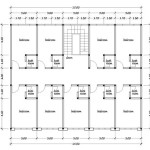Essential Rules of Safe Home Income Plans
Safe Home Income Plans (SHIPs) are financial products designed to provide homeowners with a stream of income in their retirement years. These plans offer several advantages over traditional retirement accounts, but they also come with their own set of rules and regulations.
To ensure that you fully understand the terms of your SHIP, it is important to be familiar with these rules. The following are some of the most essential rules to keep in mind:
1. Eligibility Requirements
To be eligible for a SHIP, you must meet certain requirements. These requirements typically include:
- Being at least 62 years of age
- Owning your home outright or having a mortgage balance that is less than 50% of the home's value
- Having a good credit score
2. Plan Limits
There are limits on the amount of money that you can receive from a SHIP. These limits are based on a variety of factors, including your age, health, and the value of your home. In general, the maximum amount that you can receive from a SHIP is 80% of the value of your home.
3. Income Payments
SHIPs provide income payments on a monthly basis. The amount of your income payments will depend on the terms of your plan and the amount of money that you have invested. In most cases, you will receive a fixed amount of income each month, but some plans may offer variable income payments that can fluctuate based on market conditions.
4. Fees and Expenses
There are a number of fees and expenses associated with SHIPs. These fees can include:
- Application fees
- Origination fees
- Annual fees
- Closing costs
5. Tax Implications
SHIPs are taxed differently than traditional retirement accounts. The income that you receive from a SHIP is considered to be a loan, so it is not subject to income tax. However, the interest that you pay on your SHIP loan is tax-deductible.
6. Reverse Mortgage Considerations
SHIPs are often compared to reverse mortgages. However, there are some important differences between the two products. One of the most significant differences is that SHIPs do not require you to sell your home. With a reverse mortgage, you will need to sell your home when you no longer need the income payments.
7. Getting Advice
Before you purchase a SHIP, it is important to get advice from a qualified financial advisor. A financial advisor can help you to understand the risks and benefits of SHIPs and determine if they are right for you.
SHIPs can be a valuable financial tool for homeowners in retirement. However, it is important to be aware of the rules and regulations that govern these plans before you make a decision.

The 50 30 20 Rule Ramsey

Retirement Planning How To Plan Your Financial Journey The Motley Fool

403 B Withdrawal Rules For 2024 The Motley Fool
How To Create A Budget In 6 Simple Steps

Why Should I Invest 15 Of My Income For Retirement Ramsey

Beyond The 4 Rule How Much Can You Spend In Retirement Charles Schwab

How Much House Can I Afford Ramsey

Safe Stocks To Buy Invest In Low Volatility 2024 The Motley Fool

Beyond The 4 Rule How Much Can You Spend In Retirement Charles Schwab

Funeral Home Now Has To Post S Consumer Advice








